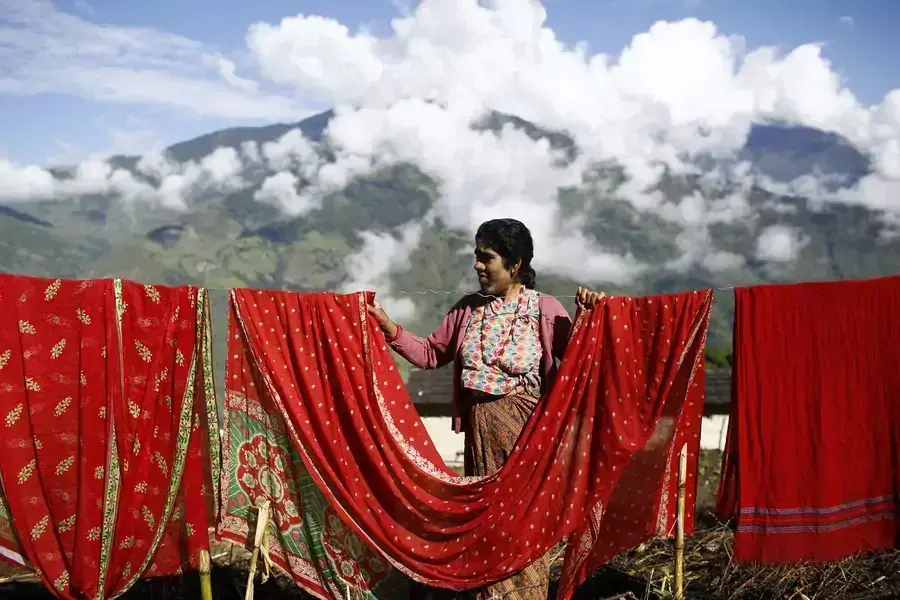Time to Count Women's Work

This blog was coauthored with Becky Allen, a research associate in the Women and Foreign Policy program at the Council on Foreign Relations. You can follow her @allenbecky8.
As global leaders gathered in Davos last week to address the world's greatest geopolitical and economic challenges—from automation anxiety to the future of trade and investment—one theme proved unusually ubiquitous: gender equality.
More on:
For the first time in the four-decade history of the World Economic Forum (WEF)'s Annual Meeting, an all-female team chaired the summit in Davos. Propelled by the #MeToo movement, the agenda featured several sessions to address gender disparities in the workplace and the pervasive scourge of workplace sexual harassment. And Canadian Prime Minister Justin Trudeau kicked off the week with remarks highlighting the need to hire, promote, and retain more women, citing research that gender parity could raise productivity and boost GDP by $2.5 trillion.
While these changes are certainly a step forward at the Davos annual meeting—at which women still comprise fewer than 25 percent of delegates—dialogue alone won't eliminate the barriers to economic participation that women face worldwide. Rather, serious policy reform is needed to facilitate women’s transition into higher-wage sectors and occupations, eliminate gender wage gaps, and reduce the burden of unpaid work on women.
One good place to start: count women's work.
Women perform 75 percent of the world’s unpaid work, thereby subsidizing the global economy and reducing the amount of time they have to devote to paid employment. Among women who do participate in paid labor, many are confined to the informal economy, where they lack social protections, receive lower wages, and are often subjected to lower safety standards and harassment.
Despite the value of unpaid and informal work to the global economy—with economists estimating that women’s unpaid work constitutes as much as 39 percent of global GDP—this labor is often absent from official statistics and economic analyses. In other words, much of women's work goes uncounted or undercounted.
More on:
This information gap has been called the "missing link" in our understanding of gender inequality in the workplace—and closing it would advance broader efforts to improve metrics of economic progress. Indeed, pundits at this year's summit in Davos warned leaders against putting too much trust in GDP as a measure of economic success, given the metric's failure to address economic inclusivity.
Perhaps a more accurate picture of nations' prosperity can be found in the 2018 Inclusive Development Index (IDI) released on Monday by the World Economic Forum. The Index analyzes the economic performance of 103 nations and provides country rankings based on twelve indicators to assess standard of living, including healthy life expectancy, median household income, and poverty rate.
According to the IDI, the GDP of advanced economies grew by 5.3 percent on average between 2012 and 2016. However, inclusion only increased by 0.01 percent within this time period. These findings support the argument that economic growth does not necessarily correlate with a rise in standard of living for the masses—or for fifty percent of the world's population.
Any measure of economic success that overlooks indicators of gender equality in the economy—factors such as women's unpaid and informal work, pay disparities, and the underrepresentation of women in leadership—not only fails to tell the whole story, but also undermines our ability to devise economic policies that make the most of our entire talent pool.
As the rising tide of global activism by and for women reaches capitals and C-suites around the world, policymakers and leaders need to do more to advance women's economic participation. To truly recognize that women's work counts, policymakers and leaders need to reform economic policy to count women’s work.
 Online Store
Online Store
